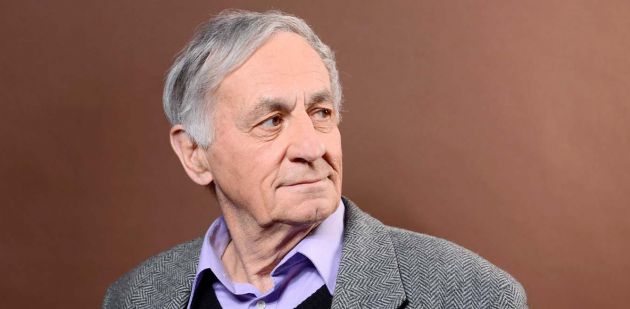A “science critic”, the way others might be literary critics, Jacques Testart defends a scientific approach to serve the common good. Interview.

jacques testart / No one can deny the contribution of Western science to our civilisations and our understanding of the world. It has been compiled into an exceptional trove of knowledge through its rational protocol applied to the continuous acquisition of knowledge. But from a rational point of view, i.e. that of science, it cannot be defended without criticism. To believe that science has the answer to everything, is right about everything, and to exalt it as a religion without criticising it, is dogmatism and doesn’t have much to do with scientific thinking. Criticism or challenging progress, which does not mean flatly rejecting all technical production, is often met with hostile, summary judgement. These challenges are said to be the work of obscurantists who would support going back to living in caves. However, not all criticism can be equated with conspiracy or ignorance.
jt / I demystify scientific activity to enable citizens to feel legitimate in making judgements about institutions and their production. The science critic’s job is to raise legitimate doubts among people about whether we want to solve social problems predominantly using technological means. The science critic has the will to understand and reveal mechanisms common to undesirable developments of science when it is used in specific interests or harmful ideologies. Today, for example, the interests of capitalism are decisive in the harmfulness of scientific activities.
jt / Yes, the critic aims to challenge the elitist and authoritarian nature of the scientific community, which is often imbued with its prerogatives, and its relative indifference to the economic, ecological or ethical effects of its activities. Scientists are not demigods or demigoddesses. Being a researcher should not keep the person from remaining a citizen and therefore responsible for the consequences of their actions.
The critic also notes the condescension with which they sometimes regard the public, which they believe is incapable of understanding or judging scientific activity. Critics are interested in the observed or foreseeable consequences of technical and scientific activity, subject to economic or military purposes. The arrogance of official science, or its instrumentalisation by interests that are not those of the people, can have the unfortunate repercussion of leading some people to prefer everything that does not come under it, at the risk of endorsing practices that are totally unfounded.
jt / A scientific background is obviously required when it comes to judging the scientific quality of an approach or outcome. But when it comes to innovations that affect people’s lives and, as is often the case, threaten the common good – our quality of life, our health, the environment, etc., anyone is entitled to judge.
jt / Faced with the commodification of knowledge and life, numerous mobilisations and initiatives have launched a democratic reaction, calling for a new social pact for science that is civic-minded, responsible and community driven. It is not a question of a”'rise in irrational beliefs” or a lack of information or “scientific culture”. These manifestations show that science for all must be built with everyone involved, in dialogue with knowledge that has thus far devalued knowledge, for example that of farmers. And this, by recognising that the noble scientific approach to discovering and understanding the world is very often underpinned by the utilitarian desire to control and bring to market, especially as science became technoscience in the 20th century.
jt / The Anthropocene – the current geological era marked by destructive human influence, particularly on the climate and the biosphere – is essentially the consequence of exercising unbridled technological power. It is therefore absolutely legitimate and urgent to subject technoscience to critical examination. Humans have shifted our world into irreversible hostility and continues to support this fatal trend. It is high time we asked what genuine scientific progress could be that protects natural resources, does not cause significant pollution, moves forward with caution, and creates or respects conviviality. In short, progress that enhances human life without compromising the planet and living beings. It is up to the people to make these choices, not scientists, however “expert” they may be. Procedures must be validated so that the citizens decide on the common good.
jt / Very few understand and accept it. Generally speaking, researchers who have invested a lot (lengthy studies, unlimited working hours, low pay, etc.) and who have a noble vocation, seek esteem and challenge any critical analysis of their function. They believe that society alone can provide them with more resources. They often unwittingly confuse knowledge (an undisputed objective) with the production of resources and techniques to change the world (an objective to be reviewed by the population). The environmental crises are beginning to open their eyes.
* Jacques Testart refers to the “Maîtriser la science” manifesto, published in 1988 in Monde et Nature, also signed by biologist Albert Jacquard.
Defender of citizen science
French native Jacques Testart is a biologist, a pioneer of in vitro fertilisation and an honorary research director at the French Institute of Health and Medical Research (Inserm) in Paris. He is also Honorary President of Sciences citoyennes (citizen sciences). This organisation aims to enhance the research and expertise capacity of civil society, organisations, consumers and trade unions; to create a scientific third sector that better responds to growing social and ecological needs that are neglected by the dominant scientific orientations, stimulation of freedom of expression and debate in the scientific community, as well as to support whistleblowers.